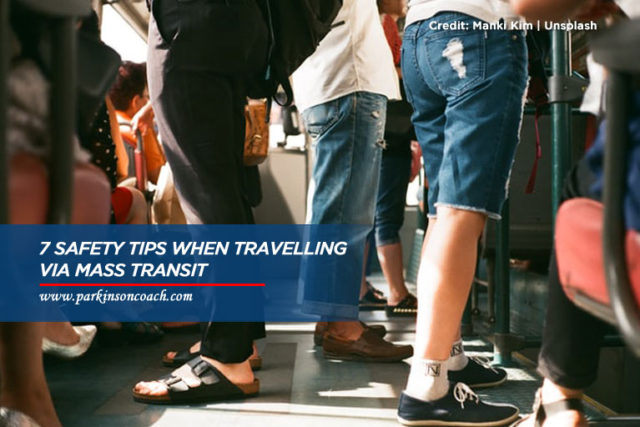As provinces across Canada start to ease lockdown restrictions, public transportation is expected to be crowded as people resume travel. This can become a source of anxiety for the riding public since being in close proximity with a large group of commuters heightens the risk of infection.
It’s completely normal to feel worried about your health and safety during this pandemic. If you really need to travel either for work or other urgent matters, there are precautionary measures you can take to protect yourself when using public transport services.
Following these measures won’t drive the virus away (for now), but it will help put your mind at ease and keep you and others protected.
How Safe Is Travelling in Canada During the Pandemic?
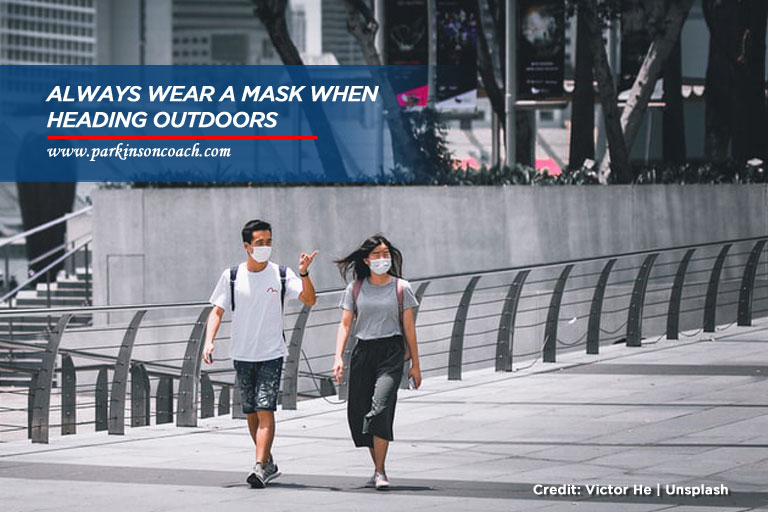
There is no guarantee that travels during the pandemic are safe, sound, and free from the risk of infection regardless of where you’re headed. Everyone is exposed to some degree of risk, whether you’re young or old, healthy or have an existing medical condition. That’s why the Canadian government advises the public to avoid non-essential travels (especially abroad).
In addition to heeding the travel advisory from the government, below are other factors you need to consider before making any travel plans:
- Age – Health experts have always repeatedly advised that elderly individuals (aged 60 and above) are at a higher risk of complications wrought by the coronavirus disease. Younger individuals may have a lower chance of fatal infection, but this doesn’t mean they can’t get infected.
- Medical history – Those with existing conditions are also more vulnerable and can get severely ill if infected with the coronavirus disease. People who are diagnosed with cardiovascular disease, respiratory disease, hypertension, diabetes, and cancer are strictly forbidden from domestic and international travel.
7 Tips for Safe Travels Via Public Transport Vehicles
Experts have yet to fully understand the nature of the virus, including its mode of transmission. This is one of the reasons why health officials strongly advise against non-essential travels, especially to areas with high incidents of infection. Holding and attending public gatherings are also prohibited.
In case you need to push through with your travels during the pandemic, below are ways to keep infection at bay when travelling via mass transport vehicles:
1.Keep your distance from other passengers
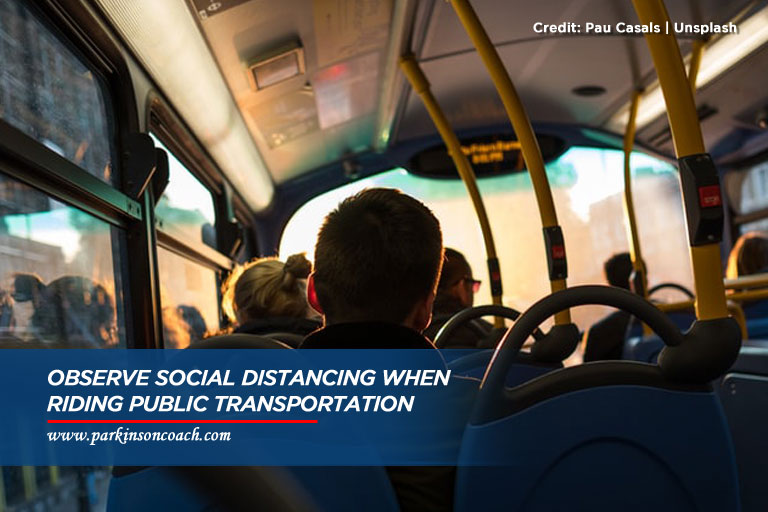
As much as you can, stay safe when riding public transport by maintaining a safe distance from other people. Stay at least 2 metres (6 feet) from passengers next to you.
Avoid using transport services where passengers are densely packed together, particularly when your trip is going to be hours long. Whether you’re riding a bus or a train, remember that the longer your exposure to others, the higher the possibility of infection.
Stay at least 1 metre (3 feet) away from a person who is coughing or sneezing to prevent contact with airborne droplets.
2. Try not to touch surfaces
What you touch when travelling may have been touched by a possibly infected person. When inside a terminal or airport, avoid unnecessarily touching objects and surfaces that are frequently touched by other passengers (e.g. subway poles and turnstiles).
Make it a habit to use hand sanitizer before and after contact with surfaces. Wear your mask properly at all times to keep your mouth and nose from direct contact with your hands.
3. Don’t touch your face
When in public places, be careful not to touch your face when you have not washed your hands. Keep in mind that the coronavirus can linger on surfaces for several hours from the moment of contamination.
When your unwashed hands come into contact with your face, you increase the risk of transmitting viruses or bacteria to your mouth, nose, or eyes, which are the entryways to your body.
4. Disinfect regularly

If you plan to stay in a hotel or some other accommodation, ensure the cleanliness of the place. Choose an establishment with stringent cleaning and disinfection processes.
Upon checking in, clean and disinfect the room thoroughly including the door handles, light switches, remote control, and other frequently touched surfaces. Take a shower before settling in.
5. Always wash your hands
This is the bare minimum preventive action you can do to reduce the chances of getting the coronavirus disease. The Center of Disease Prevention and Control (CDC) suggests washing your hands with soap and warm water for about 20 seconds as often as possible.
Make sure to wash your hands immediately after riding transport vehicles. When travelling via plane, wash your hands after getting off the aircraft and after exiting the airport.
If you can’t wash your hands at the moment, use an alcohol-based sanitizer and rub it all over your hands and wrists. Wash thoroughly with soap upon arrival at your destination.
6. Steer clear from crowds and enclosed spaces
Are you travelling to a province or country with a record number of COVID-19 incidents? Avoid places where people usually converge. Examples of these areas are groceries, cafes, malls, and parks.
It also helps to be fully informed about the place you’re visiting before your arrival. Research about the policies being implemented and advisories that were released by the government organizations. Follow their rules and regulations, especially those related to being in public spaces.
7. Wear a mask at all times
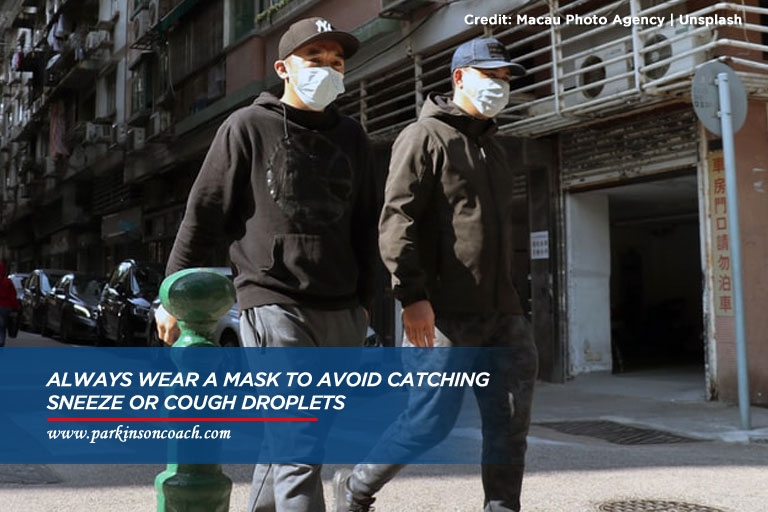
If you’re travelling via plane, be advised that since April 20, 2020, the Canadian government is mandating all air passengers to wear a non-medical mask throughout the duration of the travel.
Travellers are required to cover their mouth and nose particularly in these situations:
- When passing through screening checkpoints at Canadian airports
- When physical distancing from other passengers isn’t possible (or at the directive of the airline employees)
- If a public health official instructs so or when a public health order has been released
Additional Travel Reminders During COVID-19
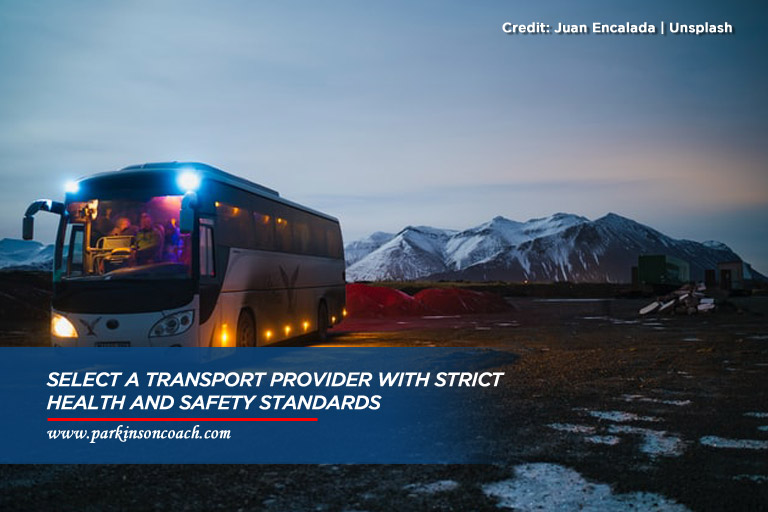
Passengers departing from or arriving at Canadian airports also need to wear a non-medical mask when boarding the plane. Otherwise, they will not be allowed to travel.
Those travelling within Canada and are arriving from international flights will have to undergo a health check just before boarding. You may not be allowed to board the plane if you:
- Exhibit possible symptoms of COVID-19
- Have been denied boarding in the past 14 days by airline personnel because of medical reasons associated with coronavirus disease
- Are subject to local public health order
Passengers who are showing potential symptoms of COVID-19 are not permitted to get on the plane until:
- 14 days have passed since their last screening
- They present a legitimate medical certificate and necessary transport documents that confirm that their symptoms are not caused by the coronavirus disease
If you’ve developed signs or symptoms similar to that of COVID-19, note that you will not also be allowed to commute to where you are advised to be isolated.
For complete guidelines, visit the Government of Canada official website to learn more about the COVID-19.
At this time, it’s crucial to make an informed decision and to abide by safety standards when travelling. This does not only ensure your personal wellbeing, but also that of others. If possible, never travel during peak times to avoid the risk of infection.
Before boarding a bus, train, or plane, learn about the safety measures observed by the transport service provider. Make sure they employ strict guidelines and place the utmost importance on public health.
If you’re looking for transport for hire or bus rental services in Toronto or Brampton who can accommodate group travels, look no further. Parkinson Coach Lines is at your service. We can get you to your destination safely. In these critical times, we put the welfare of our clients at the top of our priorities. Contact Parkinson Coach Lines at 1-866-550-6800 today.







